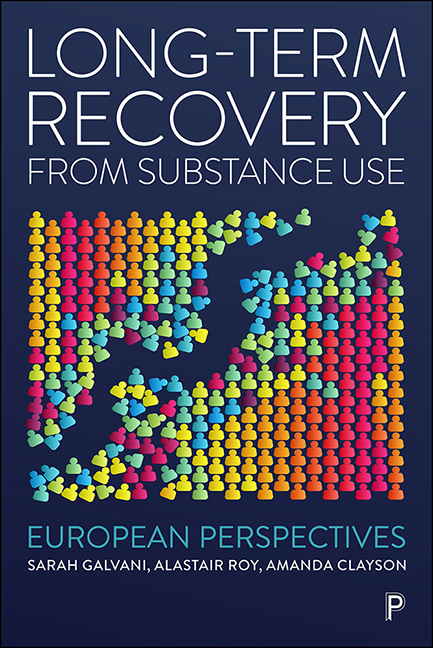3 - Telling recovery stories: an exploration of the relationship between policy, practice and lived experience
Published online by Cambridge University Press: 15 September 2022
Summary
Introduction
This chapter offers a critical exploration of long-term recovery by exploring the relationship between policy, practice and lived experience. It draws on findings from a three-year Economic and Social Research Council–funded project which, between 2012 and 2016, explored the evidence base around the implementation of a recovery-oriented model of service provision in Lancashire, UK. The study generated a detailed understanding of the development of a new recovery-oriented model of care as well as a contextualised understanding of the lived experience of a number of people using substance-use treatment services.
The case study presented in the chapter explores one transgender woman's ongoing struggles to address her substance use, to find employment and to feel accepted in the wider community. It argues that exploring the links between the micro level of lived experience, the meso level of practice and the macro level of policy is important for developing and honing our understanding of the lived effect of the implementation of recovery policy. One important value of biographical methods is that they can tease out the motivations and justifications of individuals, helping us to explore and understand the relationship between policy, practice and lived experience. Rustin (1991) argues that it is through the analysis of single cases that selfreflection, decision-making and action in human lives can best be explored and represented; the ontological assumption being that individual biographies make society and are not merely made by it. Hence, this chapter concludes by arguing that recovery as a policy storyline presents a resolution narrative for substance use which replaces the previous risk management one. I argue that the case study I present demonstrates that there are important tensions between the policy storyline about recovery and the everyday lives of people with substance-use issues (Roy and Buchanan, 2016).
Recovery as policy storyline
The idea of recovery has a relatively recent history in substance use in the UK, and indeed, the language, much of the research base and many of the concepts have been adopted from the field of mental health. The term ‘recovery’ first appeared in policy in England in the coalition government's 2010 strategy Reducing Demand, Restricting Supply, Building Recovery: Supporting People to Live a Drug Free Life (H.M. Government, 2010), which sought to address both alcohol and other drugs.
- Type
- Chapter
- Information
- Long-Term Recovery from Substance UseEuropean Perspectives, pp. 28 - 39Publisher: Bristol University PressPrint publication year: 2022



